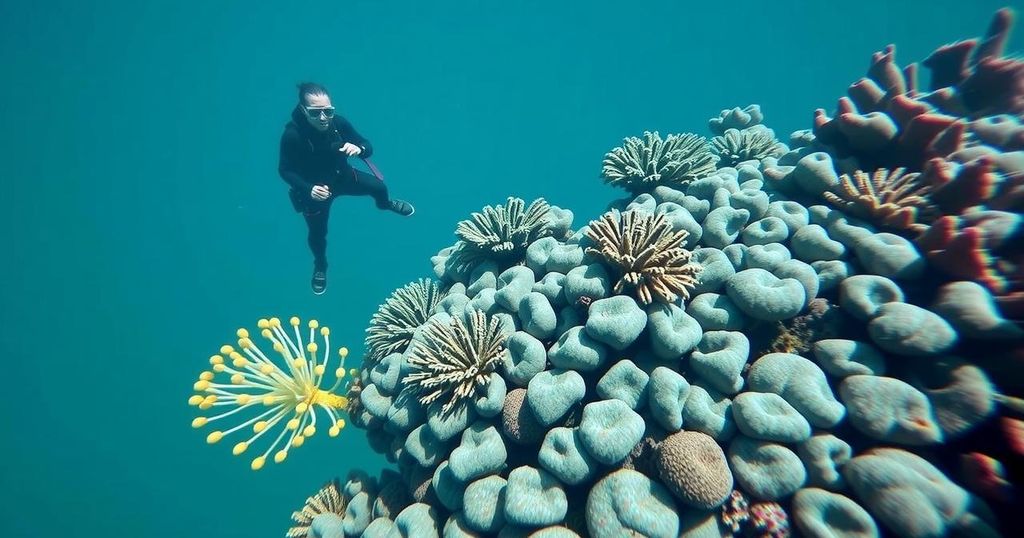The United Nations has urgently called for increased funding to protect coral reefs, which are facing extinction due to climate change. Research indicates that 77% of the world’s reefs are experiencing bleaching, marking the largest and fourth global bleaching event. This situation calls for immediate action to conserve vital marine ecosystems.
On Wednesday, during a critical session at the Colombia biodiversity summit, the United Nations alongside scientists and governmental authorities urgently called for enhanced funding to safeguard coral reefs, which are on the brink of extinction. This alarming plea follows recent research indicating that an overwhelming 77% of the world’s coral reefs are currently experiencing bleaching, primarily attributed to elevated ocean temperatures driven by anthropogenic climate change. The event marks the fourth occurrence of mass global coral bleaching, the largest on record, impacting reefs across both the northern and southern hemispheres, as reported by the United Nations Capital Development Fund. Immediate action is deemed essential to conserve these vital ecosystems, which serve various ecological and economic roles.
Coral reefs have long been recognized as crucial components of marine biodiversity and are integral to the health of ocean ecosystems. They provide habitat for myriad marine species, protect coastlines from erosion, and contribute significantly to local economies through tourism and fishing activities. However, these ecosystems are increasingly threatened by climate change, specifically through the phenomenon known as coral bleaching, where corals lose their vibrant colors and the symbiotic algae that provide them with essential nutrients. This widespread bleaching event highlights an urgent environmental crisis and underscores the necessity of global cooperation in funding research and conservation efforts to mitigate further degradation of coral ecosystems.
The United Nations’ declaration at the Colombia biodiversity summit highlights a pressing need for increased financial investment in coral reef preservation. With 77% of the world’s reefs affected by bleaching due to climate change, the current situation is critical. The fourth mass coral bleaching event on record demands immediate and coordinated global action to protect these vital ecosystems from further loss. The collaboration of governments, scientists, and international organizations is paramount to ensure the survival of coral reefs for future generations.
Original Source: www.washingtonpost.com






